Federalism in India | Political Science - Commissions on Centre-State Relations | 12th Political Science : Chapter 5 : Federalism in India
Chapter: 12th Political Science : Chapter 5 : Federalism in India
Commissions on Centre-State Relations
Commissions on Centre-State Relations
A number of commission have been formed in past to study and provide recommendation on Centre-State relations.
1. Administrative Reforms Commission
There were two Administrative Reforms Commissions established in the past to provide recommendations for reviewing and reforming the administrative system of the country. The First Administrative Reforms Commission was formed in 1966 initially under the leadership of Morarji Desai and later on by K. Hanumanthaiah. It submitted twenty reports including one in which extensive suggestions were provided in the domain of Centre-State relations. The Second
Administrative Reforms Commission was constituted in the new millennium in 2005 under the chairmanship of initially Veerappa Moily and later on by V. Ramachandran.
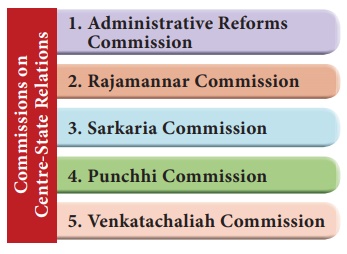
2. Rajamannar Commission
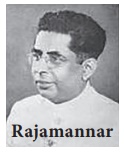
The Tamil Nadu government established the Rajamannar committee to analyze and provide recommendations for restructuring the Centre-State relations in our Constitution. The committee consisted of the retired Chief Justice of Madras High Court Justice. P.V.Rajamannar, former Vice-Chancellor of the University of Madras, Dr A Lakshmanaswamy and a former Chief Justice of Andhra, Dr P. Chandra Reddy. It submitted its report to the government in 1971 marking a great milestone in the history of autonomy debate in the country. The major suggestions of the committee include
1. The article 263 of the Constitution should be implemented and Inter-State Council should be formed to promote cooperation among central and State Governments. The proposed council must consist of the Chief Ministers of the States or their nominees and the Prime Minister as the Chairperson. All the major bills of the Parliament and decisions of the Union Government that affect the interests of one or more States must be placed and discussed in the council. Its opinion should be considered in the decision making process. The committee’s made consultation with the Inter State Council is mandatory in all matters barring those related to the two subjects, namely defence and foreign affairs.
2. The committee recommended the elimination of articles 256, 257, 339(2) from our Constitution. The committee was against specifically these articles as they enable the Centre to issue instructions to the State Governments
3. It favored the shifting of the residuary powers of legislation and taxation from the Union Government to the State Governments to empower the States.
4. The article 356 in Part XVIII of the Constitution should be diligently used by the Union Government only as a measure of last resort in the event of a complete breakdown of the Constitutional machinery in the State and not in a mere law and order break down situation.
5. The committee wanted to introduce far reaching changes in All India Services. It suggested the abolition of All India Services including the elite Indian Administrative Service as they are against the spirit of federalism and State autonomy. It highlighted the concerns of the State Governments ruled by opposition parties of the ruling party at the Centre about the All India Services acting as agents of the Union Government.
6. In the domain of financial resources the committee recommended greater devolution of powers and resources to the States. For the purpose of expanding the financial capacity of the States it suggested changes in certain taxes like corporation tax, customs and export taxes. The committee recognized the finances as the fulcrum of State rights and balanced federalism and therefore recommended the transfer of many items from Union List and Concurrent List to State List in the seventh schedule of the Constitution. It argued for making the Finance Commission a permanent, impartial body devoted to the priorities of national unity, development and State rights and identities.
3. Sarkaria Commission
The Union Government constituted a commission under the chairmanship of Justice R.S.Sarkaria in 1983 to review the Centre-State relations.
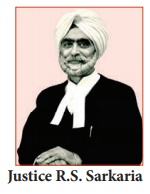
B.Sivaraman and Dr.R.S.Sen were the two other members of the commission Five years later, it submitted a comprehensive report containing 247 recommendations.
Inter State Council
It recommended that the Inter-State Council must have the functions laid down in article 263 (b) and (c) that is to investigate subjects where many States have common interest and to make recommendation
for better co-ordination of policy in that subject. The commission argued against article 263(a) stating that the Inter-State Commission should not have powers to enquire and advise on interState disputes. The commission also suggested the establishment of an independent, permanent secretariat for Inter-State Council to make the body more effective.
Article 356
It suggested that the article 356 must be imposed only meagerly, as a measure of last resort when there is a complete breakdown of Constitutional machinery in a State. All available and possible alternatives should be explored before the imposition of the article 356 Emergency in the State concerned.
Governor
The commission rejected the demand and suggestion of some political parties and States that the office of governor must be abolished or the concerned State Government must be consulted before the appointment of State governors. On the contrary, for smoother functioning of federalism it suggested that the politically active persons and leaders should not be appointed as governors. Only eminent persons must be appointed as governors. When differing parties are ruling at the Centre and States the leader belonging the ruling party at the Centre must not be appointed as the governor of a State.
Language
It recommended the strict adherence to the tri language formula to strengthen the unity and integrity of the country.
4. Punchhi Commission
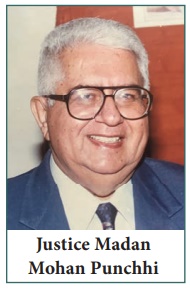
The Union Government constituted a commission in 2007, under the leadership of Justice Madan Mohan Punchhi, the former Chief Justice of the Supreme Court in 2007. The commission also had three more members and a Secretary and presented its report in 2010. It recommended that the governors of the States must have fixed tenure and they should be removed only through impeachment process akin to the President of India. It wanted to introduce changes in articles 355 and 356 so that insurgency or problem afflicted areas or districts in a State rather than the entire State can be brought under emergency as a strategy to localize emergency and efficiently handle insurgency or troubles. The commission also suggested that the Union Government must have power and authority for the suomotu deployment of central forces without the consent of the concerned States in areas affected by communal violence.
5. Venkatachaliah Commission
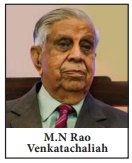
The National Commission to review the working of the Constitution (NCRWC) also known as Justic M.N Rao Manepalli Narayana Venkatachalia RaoVenkatachaliah Commission was set up by a resolution of the NDA Government of India led by Atal Bihari Vajpayee on 22 February 2000 for suggesting possible amendments to the Constitution of India.
Activity: Case study
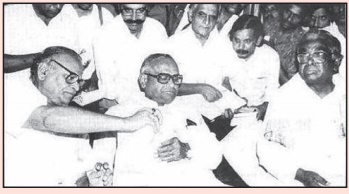
Supreme Court Judgment in S.R. Bommai Case
Somappa Rayappa Bommai (6 June 1924 to 10 October 2007) was the 11th Chief Minister of Karnataka. He was also the Human Resource Development Minister in the United Front Government from 1996 to 1998 and served with both the Prime Ministers H. D. Deve Gowda and I. K. Gujral.
The Supreme Court delivered a landmark judgment in the S.R.Bommai versus Union of India Case in 1994 that has protected the rights of the states greatly. S.R. Bommai was the Chief Minister of Karnataka and his government was dismissed in 1994 by the Central Government leading to the filing of the case in the Supreme Court. The judgment protected the states from the arbitrary dismissal at the hands of the hostile Central Government. The main features of the judgment are:
Article 356 is an exceptional power to the Union Government and it should be used only occasionally to meet the exigencies of special occasions.
Emergency under this article can be imposed only on certain grounds signifying Constitutional breakdown. For example, if no party or coalition is able to generate majority support after the Legislative Assembly elections resulting in a hung Assembly; if Constitutional directions from the Central Government are disregarded by the State Government or State Government actively assists in internal subversion.
Emergency cannot be imposed on certain grounds as they do not constitute Constitutional breakdown. For example, a mere law and order problem cannot be construed as Constitutional breakdown. And, emergency cannot be imposed if the ruling party in the state lost heavily in the Parliamentary Elections.
The Governor’s report on the breakdown of the Constitutional machinery in the state must be placed in Parliament. The report should be a thorough one detailing the exceptional situation in the state.
The Legislative Assembly of a state cannot be dissolved before the proclamation of the president is approved by both Houses of the Parliament.
The court has power to determine the validity of the imposition of emergency under article 356 of the Constitution. If the court finds the grounds of imposition unconstitutional it can and will nullify the proclamation and restore the dismissed State Government to life. TO put it succinctly the Supreme Court possesses the power of Judicial Review over the imposition of article 356.
Ever since the judgment was delivered by the Supreme Court, the State Governments ruled by opposition parties have been protected from arbitrary dismissal by the Central Government with a different ruling party.
Dr. Ambedkar called this Article 356 as a dead letter to the Constitution as it negates the federal characters of the Indian Political System and the popular sovereignty of an elected government.
Dicey: “A federal state is nothing but a political contrivance intended to reconcile national unity with maintenance of states’ rights”.
Activity
Prepare a project report on the role of the Governor in the evolution of state politics in India.
Activity
Organize a debate in the class on the state autonomy demands in India.
Activity
Organize a group discussion in the class on the argument that the big states must be bifurcated into small states so as to promote development.
Related Topics